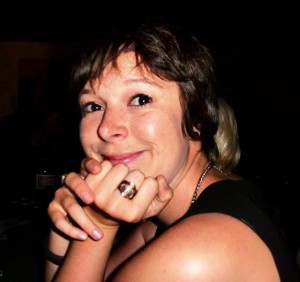Archive for the ‘Mira Fey’ Category
Explanations of the popular participation in the Rwandan genocide
By Mira Fey
Book Review
Lee Ann Fujii,
Killing neighbors: Webs of violence in Rwanda
Cornell University Press 2011
Previous research on driving forces of the genocide
Questions of intimate mass violence in ethnic killings are especially puzzling for researchers investigating political violence. Various approaches examine reasons for popular participation in the relatively recent genocide in Rwanda which exhibited especially brutal killings of acquaintances such as neighbors by regular villagers.
Some of these approaches link ethnic violence with structural violence by looking at cultural and historical particularities that allegedly led to distinct ethnic identities and a society divided along ethnic lines that can be equated with class divisions (Mamdani, 2001). Others focus on the role of the state and the hierarchical organization of Rwandan society as facilitating conditions for mass participation in the genocide (Prunier, 1995).
According to Straus who conducted one of the most extensive field studies in post-genocidal Rwanda, these perspectives portrayed the genocide as “a state-organized, planned extermination campaign that served elite interests and drew on constructed ethnic categories” (2004, 86), thereby shifting the analytical focus on macro-level examinations and elite actions away from the original puzzle of popular participation. Consequently, Straus’ own research focuses on local-level dynamics of the Rwandan genocide. Read the rest of this entry »
War is not over when it is over – A review
By Mira Fey
When discussing conflicts and military interventions, the aftermath is neglected by state leaders and the mainstream media. The traumatizing effects of the conflict itself and the following intervention on the civilian population that is supposed to be protected are ignored.
Aside from being in the line of fire and being forced to fight for one of the belligerents, these effects include a mass exodus of refugees, a division of the population into opponents of the intervening force and “collaborators” resulting in persecution and often torture of the latter, and more human rights violations, now by the occupying force.
While men often are the visible victims of forced recruitment, persecution and torture, women, young girls, and children are the silent sufferers. They are subjected to beatings, rapes, and domestic violence from returning tortured husbands trying to regain at least some respect through oppressing the most vulnerable ones.
Ann Jones wants to give these women a voice. (Continue here)
Mira Fey’s CV
Became TFF Associate in August 2013
MIRA FEY
Avenue de Miremont 46 | 1206 Geneva, Switzerland | mirafey@gmail.com • Blog
EDUCATION
– M.A. International Relations/Political Science Autumn 2013 to Spring 2015
The Graduate Institute of International and Development Studies (IHEID), Geneva, Switzerland
– B.A. International Relations Autumn 2010 to Spring 2013
Malmö University, Sweden
Thesis: The Importance of National Discourse for IR – Critical Discourse Analysis of US Congressional Debates on the Secure Fence Act of 2006 (Passing Grade A/Excellent)
– Related Coursework: Global Political Economy, Regionalization and Globalization, Human Rights
Erasmus Exchange Autumn term 2012
Coventry University, United Kingdom
Related Coursework: Global Organized Crime, Comparative Politics and Governance
EXPERIENCE
Various positions, most recent: Vice President and Head of Program Coordination Autumn 2011 to Spring 2013
Malmö Association of Foreign Affairs (UF Malmö) Coordinating the department for program and the communication with other departments and the university
Academic Writing Tutor Autumn 2011
Malmö University
Volunteer in various NGOs
Tumaini Centre, Tanzania Autumn 2008
Project for street children
AIDS-Hilfe Wuppertal e.V., Germany Summer 2008
Organization offering support and counseling for victims of HIV/AIDS
Foyer Keraman, France Summer 2007
Institution for handicapped persons Assisting in social activities Translation for French-speaking clients
SKILLS & ABILITIES
Team Work Society, Coventry University
Communication proficient with Windows 7 and Microsoft Office 2010
Languages German, English; limited working proficiency in French and Swedish

